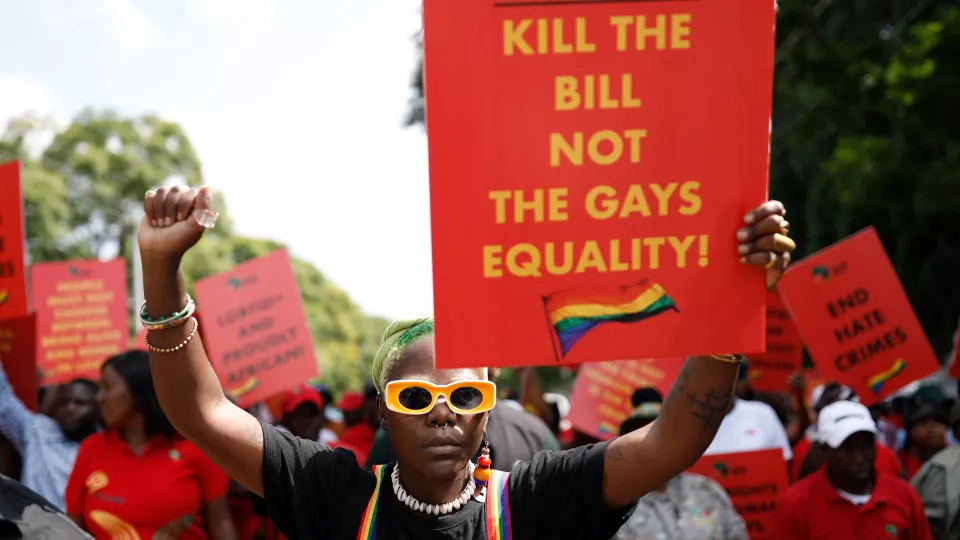The president of Uganda recently signed one of the world’s strictest anti-gay laws. According to a new law, “homosexual acts” can lead to the death penalty. Anette Agardh, professor of global health, has for a long time conducted research and training programs on sexual health and human rights in the country.
What explains the extremely negative attitude in Uganda on LGBTQ issues?
– It has to do with Uganda’s history. The difficult HIV-AIDS situation in the 1990s triggered a large influx of international aid, not least from Christian organisations in Europe and North America. Uganda is a deeply religious country where churches and other religious congregations are the most important grassroots social organizations. With this aid followed an extremely religious-ideological message in which homophobia is an ingredient. There is strong pressure on the president, who has now signed the bill, from religious leaders.
Can you tell us about the training programs you have been organising in Uganda since 2005?
– The focus of the training program is on the participants actively introducing concrete changes in their own organisations. For example, some have started clinics for children and women who have been exposed to sexual violence. Others have trained health staff to ensure good treatment of LGBTQ people in healthcare. A success factor has been bringing together representatives from different levels of society, such as employees of ministries, health and medical personnel, researchers and activists from civil society. By creating a platform for dialogue and collaboration between the various groups, conditions for long-term change are provided.
Right now, however, it seems to be going in the wrong direction, though…
– Yes, the new legislation is a sign of a negative development in the country, but we know that this is a long-term effort. Through our research, we have seen that our educational efforts have actually contributed to a change in attitudes and the view of homosexuality among the participants.
Do you think it is possible for the death penalty law for homosexual acts to be withdrawn?
– It is not the first time that the president signs a law on the death penalty for homosexuality. Last time, in 2014, it was tried in the Supreme Court and the law was withdrawn. One of our members in the Global Academy for Sexual and Reproductive Health and Rights is involved in a petition submitted to the Supreme Court for review of the law. This could lead to the law being withdrawn this time as well. But this can take time.
Several countries have threatened to withdraw their aid to Uganda because the legislation violates human rights. Would that be a good way to go for Sweden as well, do you think?
– It is not a simple question. Sweden needs to be present and ensure a continued dialogue with the government and local organisations. If aid is withdrawn, it will have direct consequences for many people. But this must be set against the need to take a stand against the current type of legislation that goes against human rights. You need to consider what leads to the greatest long-term impact in the desired direction.
Interview by: Ulrika Oredsson. Originally published in Swedish here.

